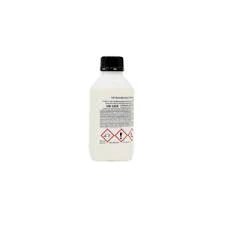inhibitor water treatment
Inhibitor Water Treatment A Comprehensive Overview
Water treatment is an essential process in various industries, necessitating the removal of impurities and contaminants to ensure safe and efficient use. One pivotal aspect of this process is the application of chemical inhibitors, which are substances employed to mitigate unwanted reactions, particularly in water systems. These inhibitors play a crucial role in enhancing the efficiency and longevity of equipment, reducing maintenance costs and improving overall operational performance.
Chemical inhibitors can be categorized into different types based on their functions and the issues they address. For instance, corrosion inhibitors are widely used in water treatment applications to prevent the deterioration of metal surfaces caused by corrosive agents present in water. In industrial settings, corrosion can lead to significant damage and costly downtime. By adding corrosion inhibitors to the water, they form a protective layer on metal surfaces, thus minimizing the risk of rust and extending the lifespan of piping and equipment.
Another critical category of inhibitors is scale inhibitors. Scale formation is a common problem in water systems, where mineral deposits accumulate on surfaces, resulting in reduced efficiency and increased energy consumption. Scale inhibitors work by modifying the crystallization process of minerals, preventing them from adhering to surfaces. This not only keeps systems running efficiently but also reduces the need for frequent cleaning and maintenance, translating into cost savings for businesses.
inhibitor water treatment

Biocides are also vital components in water treatment. These inhibitors target harmful microorganisms, such as bacteria and algae, which can thrive in water environments. The presence of these organisms can lead to biofouling, negatively affecting water quality and system efficiency. By employing biocides, operators can maintain water quality and prevent the growth of unwanted microorganisms, ensuring a healthy ecosystem within the water system.
The increasing emphasis on environmental sustainability has also driven advancements in inhibitor water treatment technologies. Many industries are now prioritizing the use of green inhibitors, which are formulated from environmentally friendly materials. These alternatives provide effective protection while minimizing environmental impact, aligning with global sustainability goals.
In addition to improving equipment performance and reducing maintenance issues, the use of inhibitors in water treatment can contribute to overall water conservation efforts. By maintaining the integrity of water systems and reducing the need for chemical cleaning processes, inhibitors help to conserve water and reduce chemical waste.
In conclusion, inhibitor water treatment is a vital component of modern water management strategies. With diverse types of inhibitors available, industries can effectively combat challenges such as corrosion, scale formation, and microbial growth. As we continue to prioritize sustainability and efficiency in water treatment, the role of inhibitors will undoubtedly evolve, paving the way for innovative solutions and practices in the future.
-
Dodecyldimethylbenzylammonium Chloride: High-Purity DisinfectantNewsAug.30,2025
-
2-Phosphonobutane-1,2,4-Tricarboxylic Acid: Scale & CorrosionNewsAug.29,2025
-
Premium Isothiazolinones | Broad-Spectrum Biocidal SolutionsNewsAug.28,2025
-
LK-319 Special Scale And Corrosion Inhibitor For Steel Plants: Advanced Solutions for Industrial Water SystemsNewsAug.22,2025
-
Flocculant Water Treatment: Essential Chemical Solutions for Purification ProcessesNewsAug.22,2025
-
Isothiazolinones: Versatile Microbial Control Agents for Industrial and Consumer ApplicationsNewsAug.22,2025





